Student Blog
Joyce
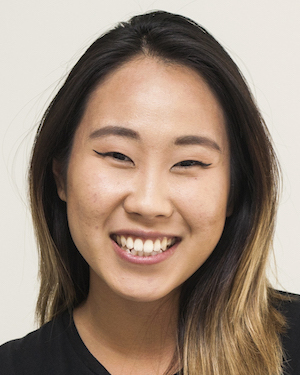
Having a Seat at the Table ⟩
September 19, 2018, by Joyce
One of the unique opportunities at USC is the Student Run Clinic, a completely student organized interdisciplinary clinic that occurs twice a month. We strive to bring about quality care for the underserved population of Los Angeles. The protocol and environment is set up for student to learn to:
- Utilize occupational therapy lens for a holistic approach to patient care
- Collaborate with disciplines from medicine, pharmacy, and physician assistant
- Advocate for the profession of occupational therapy
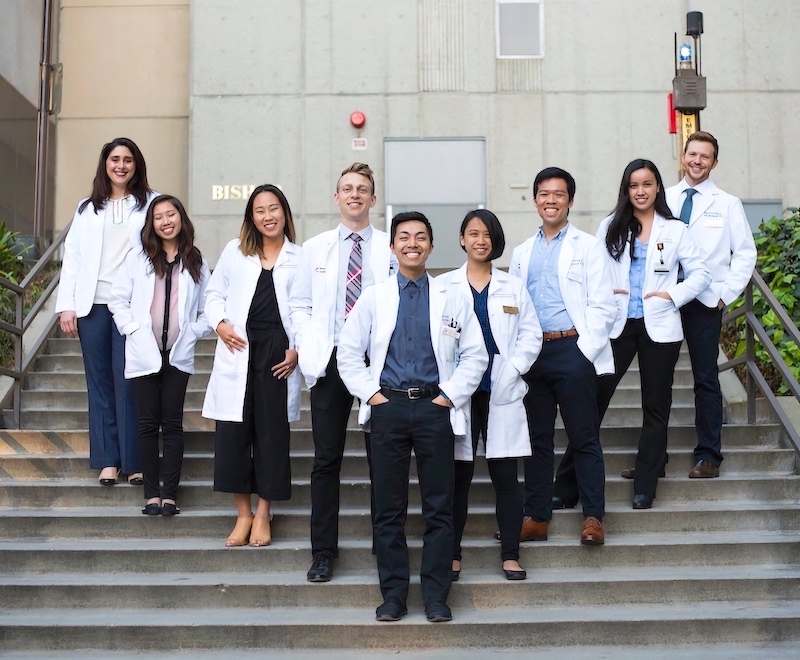
As the SRC Co-Executive Chair, I have the opportunity to represent the occupational therapy profession at the table. Coordinating patient care across four disciplines can get quite messy with the layers of communication and hierarchy. In order to create a smoother flow of communication, the executive board has been created where 2 students from each discipline comes together, and we brain storm ideas to maintain the occurrence of clinics and enhance the experience of them, for both the patients and the students. Every month, we meet to discuss any issues that may have to be problem-solved. Within this past year alone, we have tackled many obstacles including patient care, research, communication, and funding.
In partnership with my co-chair peer, I can advocate for the profession of occupational therapy. Having a seat at the table is more than being physically present. When working with the underserved, it is important to be aware of the multiple compounding factors that puts them at risk for future health concerns. While patients are at our clinic, we want them to receive the best quality care in the most efficient way. While the executive board is constantly working towards making that happen, as students, I can use my occupational therapy lens, to bring forth the narrative of the patient population. OTs have the ability and skills to dig into their routines, roles, and access, specific to this population. In this manner, we are advocating for patients using our OT lens.
Most importantly, I am given the space and time to create friendships with students from these various professions! Through our friendships, we are engaging in meaningful conversations that teach one another about our professions. I truly believe that these relationships will continue beyond our time in school and well into our clinical practice years as we learn to lean on each other for collaboration and support.
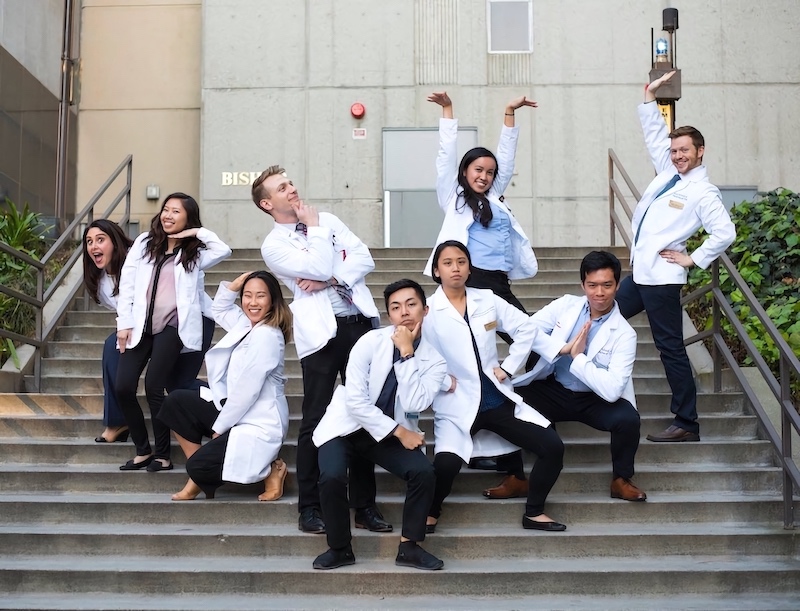
⋯

3 Reasons to Level 2 Out of State!! ⟩
September 6, 2018, by Joyce
For current and prospective students alike, I would urge you to consider an opportunity to complete your level 2 fieldwork outside of sunny state California. Here’s why.
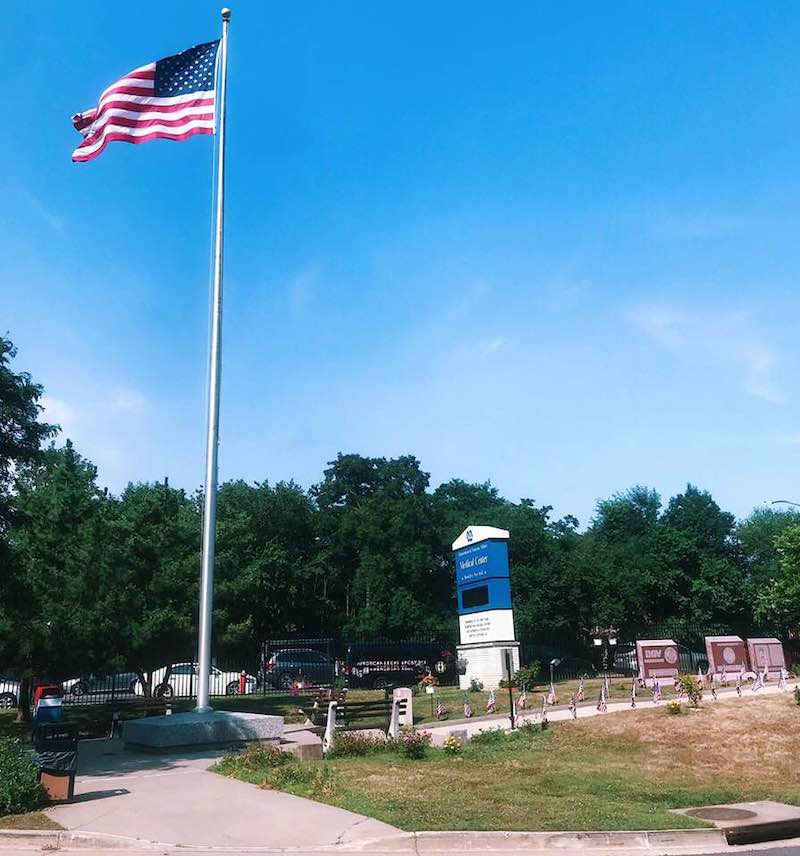
Experience a New City
This is the perfect time to travel and put yourself out there. I know it can be a scary thought (I’ve moved to two new cities already!). However, if the time isn’t now, then when? I truly believe that as students, we have the flexibility to travel without worrying about taking absence from work or using your paid time off’s. Go eat new foods, explore new restaurants, and meet great people!
Experience a New Culture
Hey, even if you’re still travelling domestically, culture varies by state and even by city. Growing up in NYC, we were always taught to grind and work hard. When I moved to Boston for my undergraduate career, the adjustment was difficult. The culture is slower paced and a lot more preppy, as if you stepped right into a J. Crew Magazine.The city is small and old yet rich with history. Now when I moved to Los Angeles, boy are the vibes different. People brunch at the weirdest times here, obsess over their dogs, and drink an unending amount of kale smoothies. I believe by working in settings outside of LA, especially if you never left LA, you get to experience various cultures and meet people from different walks of life. The more diverse your student experiences are, the more enhanced your clinical reasoning becomes and more refined your therapeutic use of self becomes.
Experience a Different OT
Having gone through two Level 1 Fieldworks and 1 Level 2, there is a difference between therapists who received their education on the west coast vs the east coast. Because my level 2 was in NYC, I had the opportunity to work with OTs and PTs who completed their degrees in New York. We bonded over deep conversations as we shared the major differences and similarities between programs. In this way, I got to understand their clinical reasoning and their experiences while at the same time sharing what I learned here at USC. Expanding your professional network within the rehabilitation field is another amazing perk of completing your fieldwork out of state!
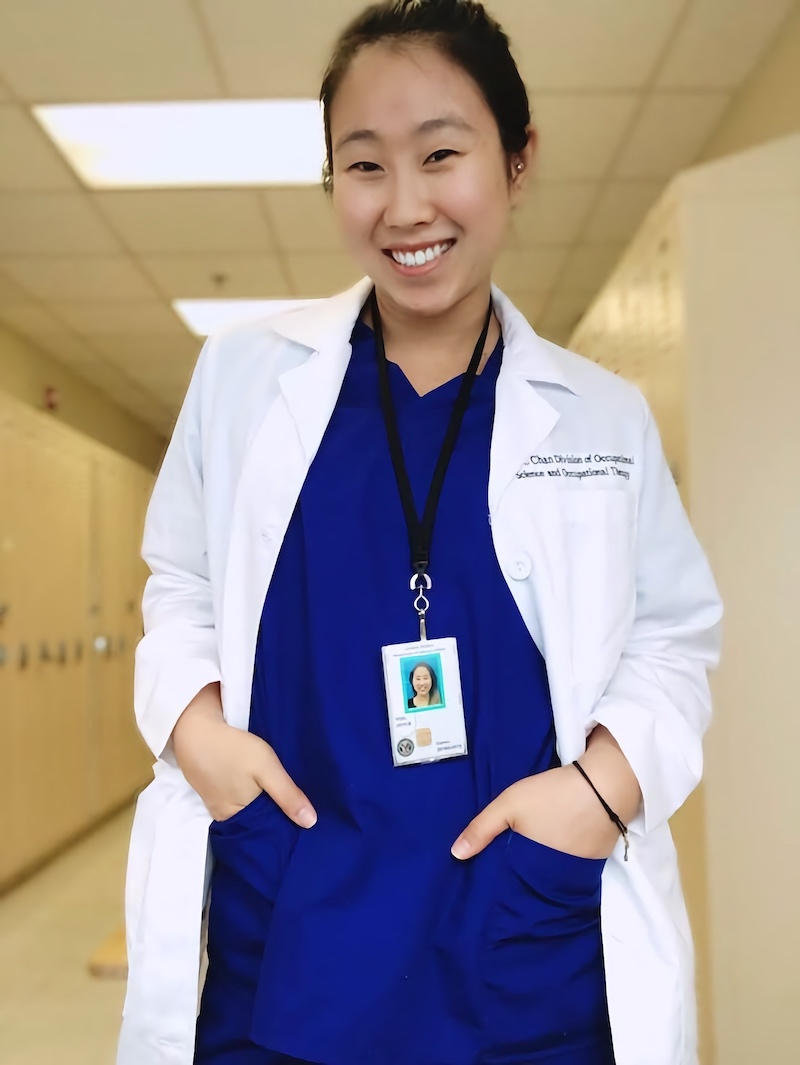
⋯

Beautiful Disruptions ⟩
August 23, 2018, by Joyce
While you can easily Google the definition of OT, more often than not, you will find that each individual explains OT in unique ways. It goes to show the power of personalization that OT practices. To me, OT is all about taking disruptions in your life and turning them into something beautiful . . . beautiful disruptions.
What do I mean by that? When I get asked the question, “Why did you choose OT?” I never leave out the story of my grandmother. She experienced a car accident decades ago, before I was born. It was a T5/T6 incomplete spinal cord injury. She was paralyzed from the waist down and as the years passed, the caregiver burden grew and my grandfather could no longer care for her alone. That is when my family decided to move in.
I remember I would use my grandmother’s reacher as my play toy to pinch my little brother. I would also get in trouble riding around in her wheelchair. To society these are representations of disability, weakness, and annoyance. But I saw the little but impactful influences they had on my grandmother’s quality of life.
My grandmother’s accident and injury disrupted my family’s lives. My father had to quit school and my mother was constantly caring for her mother-in-law. Family trips were difficult to plan because at least one of my parents had to stay home to be with my grandmother. Our day-to-day schedule worked around my grandmother’s bowel and bladder movements. As a child, I envied other grandmothers who drove their grandchildren around!
However, these disruptions were beautiful in themselves. I created an important and healthy relationship with my grandparents. Many of my friends grew up without grandparents! All in all, I realized that I am the happiest when I am serving others. This has led me to a career path that sets my heart on fire! This specific disruption brought my family closer as we worked to overcome every obstacle together.
OT guides the individual to take the disruptions in their life (like physical illness, mental health, financial difficulty, medication management, etc.) and turn them into something meaningful, something beautiful, thus turning them into beautiful disruptions.
⋯





